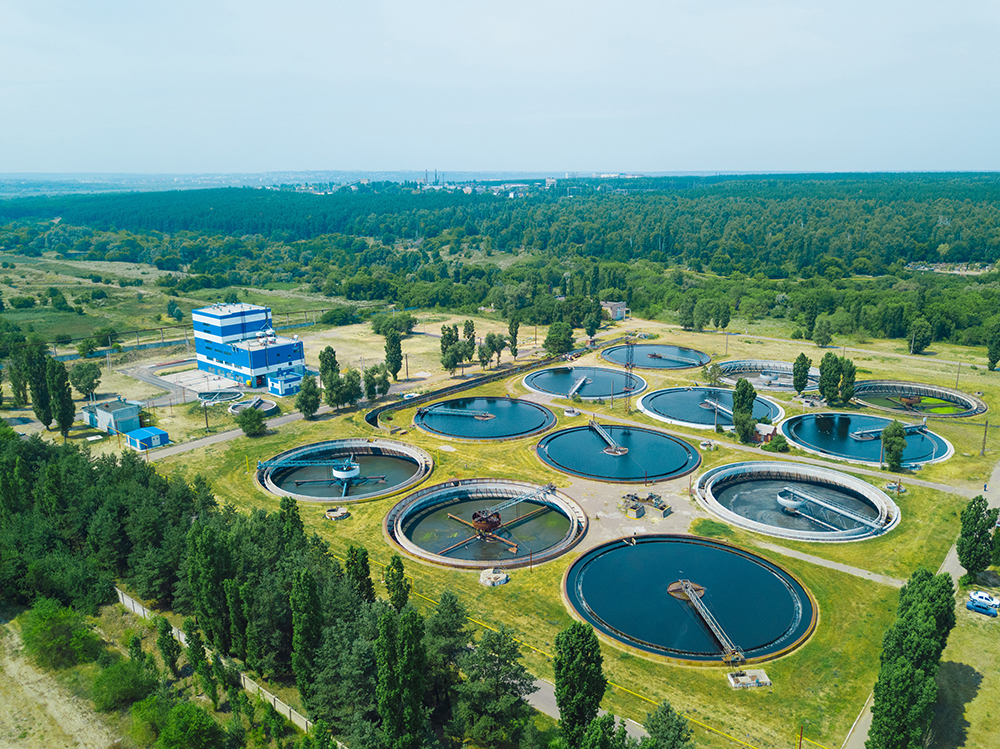
Tell us about DeNora?
De Nora is an Italian multinational company offering sustainable technologies for Green Economy. We are the world’s largest supplier of high-performing catalytic coatings and insoluble electrodes for electrochemical and industrial applications, and a leading provider of equipment, systems, disinfection, and filtration solutions for water and wastewater treatment.
What inspired you to join the water/wastewater sector and tell us about your current role?
Truthfully, I did not originally decide to join the water sector, but I certainly have decided to stay for the last 24 years. This industry is critical – water is the only basic need the same for all people, animals and birds around the globe.
Currently, my role is leading the De Nora Water Technologies, Project Management Office (PMO) and Digital Transformation Strategy, which includes implementation of our code operating systems, ERP (SAP) and Project Portfolio Management system across our global footprint.
Do you feel that women are adequately represented in the water industry? If not, what are some of the ways we can make the workforce more representative?
I do not feel that women are adequately represented in the water industry, but we are narrowing the gap more and more each year. If we keep working to balance the scales, it’s imperative we address some key issues women in water face.
The water industry, being entrenched in engineering, has historically been a male-dominated profession. If we really want to change this, we need to do more than just talk about it. We need to consciously shift our mindset away from the person and focus on the work. Gender, sexual preference, religion… None of these determine how competent or capable a person is, so there is no reason to believe these factors impact the performance of an employee. We know this, but due to preconceptions, oftentimes forget to be deliberately aware of this truth.
We also need to look harder at promotion from within as an opportunity both for the company and the employees. In my experience, managers tend to assume what their employees want to do in their career versus asking. Many years ago, I left a quality job because my manager had a preconceived notion of what I was capable of, which put a concrete wall above my head. Taking a leap of faith, though intimidating at the time, I left. I now look back and see my departure as a gift, helping me grow both professionally and personally.
Another critical point to be addressed is unequal pay. I have worked with some exceptional women who left companies because they were underpaid compared to their male counterparts. Pay should be based solely on the work performed, regardless of gender.
What are the benefits of having a clear diversity, equity, and inclusion company policy?
The benefits are enormous both for the employees and for the company when there is a consistent operating method based on diversity, equity, and inclusion. It not only helps select the best candidate for the position, but the result is also a more dynamic work team.
What steps are you taking to encourage women’s growth within DeNora?
The simple question, ‘where do you want to go’, is a very powerful one. I’ve asked peers, direct reports and women in different areas of the business this question many times. My position is that if you wait for the job to be posted before you talk about advancement, you will miss the opportunity. Managers need to know in advance that they have options in-house to fill positions, which is always a win-win for the employees and the company.
Many years ago, there was a secretary in our office, and she was very smart. However, she wasn’t thought of as capable of more. Through conversation with her, I learned she wanted to work in my department, inside sales. So before my next vacation, I spent several lunch hours showing her how to do my job. My boss was not excited about me taking a vacation, but I assured him she was capable. Boy did she surprise him! A few short months later, she was offered a promotion to work alongside me.
I really believe you don’t know what people are capable of unless you let them try. Another example that comes to mind is that we had a very sharp project administrator who was essentially carrying one of our project managers. I spoke to our general manager and HR representative, sharing my view of her capabilities and suggested expanding her role. She turned into one of our best project managers.
All that said, you could say I’m always an advocate, a person in their corner, someone who knows what it is like to be typecast based on gender. If more executives learn to share this mindset, putting in the time to truly get to know their employees’ strengths and desires, the upper management landscape will become more diverse and, in my opinion, more productive in the long run.
What are your hopes for the future of women in the water/wastewater sector?
My hope is that women continue to come together and support one another. Together, we can help develop a more diverse and inclusive workforce in the water sector.
Read more De Nora Articles and News on H2O Global News. Do you have an article or video that you would like to share? Submit your article here or keep up with the latest news from the water industry and wastewater industry by subscribing to our weekly newsletter







